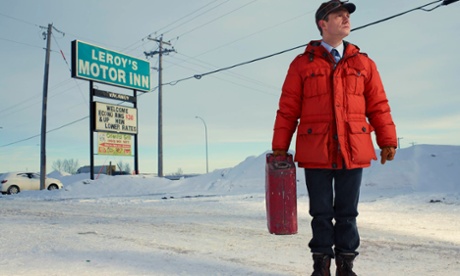
Television is having a moment. From Mad Men and True Detective to House of Cards and Boardwalk Empire, the small screen is no longer the last refuge of the washed-up stars of the silver screen, but is instead the first choice for Hollywood’s high-profile directors, actors and writers.
As the shows hit an artistic peak, so have their scores. In the past, they rarely managed to achieve the cachet of their film counterparts. While composers like Bernard Herrmann and John Williams wrote sophisticated scores for The Twilight Zone and Lost in Space, respectively, their work for the small screen stood out against a sea of forgettable background music.
More recently, television shows have developed hit-filled soundtracks thanks to the work of music supervisors like Alexandra Patsavas on The OC and Grey’s Anatomy. Patsavas built major plot points around songs: in The OC, Marissa’s death was soundtracked by Imogen Heap’s cover of Hallelujah, while Izzie’s grief at Danny’s death in Grey’s played out to Snow Patrol’s Chasing Cars. Today, music supervisor Chris Mollere continues the tradition on shows like Pretty Little Liars and The Vampire Diaries.
While soundtracks featuring pre-existing songs have flourished, original scores rarely made waves, but that is beginning to change thanks to shows like Hannibal, Fargo, The Leftovers, Luther and Sherlock, which won the Emmy for best original score this year.
Increasingly, television scores are becoming integral to shows, helping drive the action forward, accentuating the drama or highlighting the atmosphere. “The audience should visualise and relate to a character, just by hearing the music,” said Angelo Badalamenti, who composed the score to Twin Peaks. Jeff Russo’s work on Fargo expertly captures the stark loneliness of a North Dakota winter, but also crafts an ominous feeling by sparsely using of bells, silence and chamber music. Max Richter’s score for The Leftovers reflects the show’s theme of loss. “The Leftovers is all about things disappearing,” said Richter. “So I chose instrumentation that reflected that, by using material that was made mostly of instruments with a pronounced decay in their sound.”
Crafting a compelling score without distracting viewers from the action is a difficult balancing act. Luckily it’s one at which modern score composers excel. On Fargo, Russo said, “We just try to underscore the narrative and the humour without pushing too hard. We wanted to make the show as cinematic as possible, and not overscore, because there’s no need to lead the audience in this show.” On Fargo, that means tense silences. “Silence is very, very effective,” said Russo. “With as much silence as we were able to put in, when music actually came in, it was way more powerful.”
On the dark drama Hannibal, Brian Reitzell takes a dramatically different approach. “Every second of Hannibal is a heightened reality,” said Reitzell. “The musical atmosphere is part of the ambient background of the entire show. That’s why on average there is 40-plus minutes of music on Hannibal and the entire show is only 43 minutes. Sometimes there’s more music than visual!”
Scores are generally meant to support the story, to exist as a textural backdrop to the actors and the script. “Usually we don’t want to be aware of music as music in a film or television project,” said Richter. “We just want be transported by the story. But sometimes there is an opportunity to step out from that space and just really let the music carry the whole thing for a while. Those are golden moments for a composer.”
Russo agrees. “When you have a long shot with a beautiful image and no dialogue, you have a lot of room to work with as a composer. It’s usually a rare thing and you have to make the most of it.”
In successful scores, music can drive the action forward. Even then, though, scores function more as co-pilots than pilots. Reitzell’s take on the aria from Bach’s Goldberg Variations elevated Hannibal’s season finale from good to jaw-dropping, but it was still subordinate to the drama. “The music in Hannibal is not meant to be a musical cue,” said Reitzell. “It’s the wallpaper, it’s the room that the show lives in.”
“The score should always serve the story,” agreed Michael Price, composer for Sherlock. That doesn’t mean that the music can’t exist without the visuals. “If in doing that you end up with something that works away from the screen, that’s a bonus, but for me, making the show work is everything.”
“I try to write music that can stand on it’s own as music, as well as to complement the picture, not least to make the job more fun,” said Paul Englishby, who wrote the score for the BBC show Luther. “Obviously, there are many times where the music is very much supporting the picture and needs to be subtle, but you can try to make it interesting despite that.”
It’s a sentiment Badalamenti can appreciate, too. “The benchmark for a good score is not necessarily to stand on its own, but to work well for the picture,” said David Lynch’s long-term musical partner. “It’s a beautiful world, and so very nice, if you can have both.”
Badalamenti’s work on Music From Twin Peaks, the score from the 90s television series that is poised to return to television in 2016, proved that compelling music can work both as a score and as a standalone piece. Badalamenti earned a Grammy for his work and the album earned a gold record from the RIAA, an especially rare feat for a soundtrack album. Initially, though, Badalamenti couldn’t understand why it was popular.
“Early on when the soundtrack was flying off the shelves, l asked David [Lynch], ‘What is it about the music and why is it getting so much attention?’ He simply responded, ‘Angelo, it’s because the music is fucking beautiful.’”
Beauty is a high bar on which to judge television scores, but luckily one that more and more television shows are able to meet.

